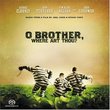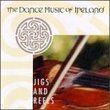| All Artists: Jean Sibelius, Max Bruch, Zubin Mehta, Midori, Israel Philharmonic Orchestra Title: Midori ~ Sibelius - Violin Concerto · Bruch - Scottish Fantasy / Israel PO · Mehta Members Wishing: 0 Total Copies: 2 Label: Sony Original Release Date: 1/1/1994 Re-Release Date: 9/20/1994 Genre: Classical Styles: Forms & Genres, Concertos, Instruments, Strings Number of Discs: 1 SwapaCD Credits: 1 UPC: 074645896724 |
Search - Jean Sibelius, Max Bruch, Zubin Mehta :: Midori ~ Sibelius - Violin Concerto · Bruch - Scottish Fantasy / Israel PO · Mehta
 | Jean Sibelius, Max Bruch, Zubin Mehta Midori ~ Sibelius - Violin Concerto · Bruch - Scottish Fantasy / Israel PO · Mehta Genre: Classical
![header=[] body=[This CD is available to be requested as disc only.]](/images/attributes/disc.png?v=a4e11020) ![header=[] body=[This CD is available to be requested with the disc and back insert.]](/images/attributes/disc_back.png?v=a4e11020) ![header=[] body=[This CD is available to be requested with the disc and front insert.]](/images/attributes/disc_front.png?v=a4e11020) ![header=[] body=[This CD is available to be requested with the disc, front and back inserts.]](/images/attributes/disc_front_back.png?v=a4e11020) |
Larger Image |
CD DetailsSimilarly Requested CDs
|
CD ReviewsThe supreme Sibelius performance is a revelation! 09/10/1998 (5 out of 5 stars) "If you've only listened to Heifetz's crude interpretation of Sibelius's tempestuous and capricious concerto in the past, you might be incredulous after listening to this CD. "What? This is the Sibelius Concerto? It's a far cry from the one in my memory." After listening to it twice, however, tears should prick your eyes--the result of two gusts of contrasting emotions in one stroke: anguish over all the beauty, passion and subtlety you've missed in the past from this fabulous concerto, and jubilation at your new discovery of this supreme recording and the privilege to relish every bar of the music. What renders Midori's performance of this formidable piece peerless? First, I know of few other violinists who can toss off the inhuman exigencies--strenuously long passages of octaves and tenths, swift and continuous harmonics, successions of multiple stoppings, and other fingerboard acrobatics--of this piece with nearly diamond-sharp perfection, especially in an unedited live performance. Parts One and Eight of the third movement are particularly of breathtaking accuracy. Incidentally, Sarah Chang and Cho-Liang Lin rival her in this aspect. But this is not merely a virtuoso showpiece. Midori's infinitely expressive, touching, provocative, and passionate tone, diversified by its kaleidoscopic palette of tonal colors, bestows spellbinding ardour, beauty, charm, sensuality, and warmth to the concerto. Yet her playing is also cogent, commanding, robust, and vigorous when the music demands so. All the virtues above alone do not make up a musician--only a magician. Yet Midori's musicality and profundity are phenomenal. Her rendition is filled to the brim with thoughtful nuances and subtle phrasing, manifesting her rare insight into this complex music, and making one mouth agape at the fact that she was still 21 at the time of this recording. For example, her interpretation of the cadenza shortly after the commence of the first movement is the most artful, inspiring and satisfying one I've ever heard among more than ten versions, for she did not rush through it indifferently like Heifetz, but played it with masterly uses of rubato, marcato, crescendos and diminuendos, giving the music myriads of shades and strata. Another good example is Part Ten of the third movement, long passagework which may turn tedious and monotonous in inferior hands and minds, but becomes a diverse musical soundscape under the bow of Midori. Midori audaciously takes the challenge of Bruch's Scottish Fantasy, a work considered by many--including Zukerman--to "belong to" Heifetz. Heifetz's awesome performance of the work has been my favorite for years, a superbly recorded rendition I used to deem matchless stylistically and artistically, and perhaps tonally. How would Midori compare with Heifetz in this work? This time she did not at first seem to gain the upper hand, partly due to the second-rate recording condition in Tel Aviv, which rendered the overall timbre slightly dark and opaque. But afterwards I realized that Midori did not try at all to imitate Heifetz; rather, her approach to the music was at the other end of the artistic spectrum, as opposed to Heifetz. Her playing is intensely warm and ardent in the slow movements, and each note is caressed by her characteristic feminine tenderness. Yet, oddly, the third movement shows a dearth of nuances, which were so prevalent in the Sibelius Concerto. She did not employ as much rubato, accents and colorful dynamics--the elements that made Heifetz's superior--as one would have expected. In the fast movements, her rendition is perky and buoyant in several passages, and her interpretation might surpass Heifetz in some places--e.g. the use of tenuto [holding a note sometimes longer than its original value] in the fourth movement. In the second movement, however, she inconceivably failed to play the double-stops in part B in perfect harmony. Nonetheless, her overall rendition of this work is still of sterling caliber, and in the final part of the last movement, the sorely missed nuances eventually appear in profusion. To my taste, however, Heifetz's supreme recording is still unequalled. Mehta and the Israel Philharmonic are competent, if not outstanding, yet the aforementioned engineering is not quite balanced. In the second movement of the Sibelius concerto, for example, Midori's glorious playing is somewhat overshadowed by the orchestra. And for every track, you'll need to crank up your CD player. It is lamentable that such transcendental feats were not well recorded." Impassioned Karen Mueller | Houston, TX | 04/12/2003 (4 out of 5 stars) "Midori's poise and delivery are technically perfect, a talent that is often under-rated despite this artist's complete devotion to craft. She fills each line with understated passion that may be easy to miss if this disk is used as background music. It deserved full attention and rewards the listener with technical and artistic excellence." Clear Performance with Technique and Sensitivity Karen Mueller | 01/27/2001 (5 out of 5 stars) "Sibelius' violin concerto is the most beautiful concerto to me. I have listened to a lot of recordings of this concerto, and this live recording was such a shock. This girl has no fear. She plays forward with great force and speed, making the music so clear with eye-popping bowing. With Midori, music never gets dull, but also nothing is taken for granted. She is technically complete, and her perfectly balanced tone between speed and density reminds me of Heifetz, but she does not hurry to kill the detail. Her music is fully formed with perfectly controlled timing. She knows the importance of blank and silence so well, and clearly differentiates her music from Heifetz and all other violinists. Midori is truely one of the greatest violinists today. Mehta's support is really clear, direct and fully balanced. Mehta and Midori are in a perfect pitch. I should say, this is very modern performance of Sibelius.Bruch's Scottish Fantasy is also such a treat. This makes a nice coupling for me since I love Scottish Fantasy much better than his 2 violin concertos. Midori is perfectly controlled as always, but also I was amazed by how positive the music sounds with Midori. She creates such a clear statement. It is so refreshing to hear something clear and direct, which you can rarely hear today."
|

 Track Listings (8) - Disc #1
Track Listings (8) - Disc #1








